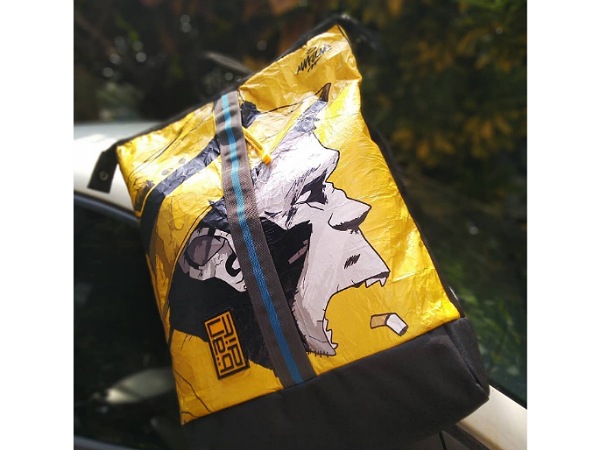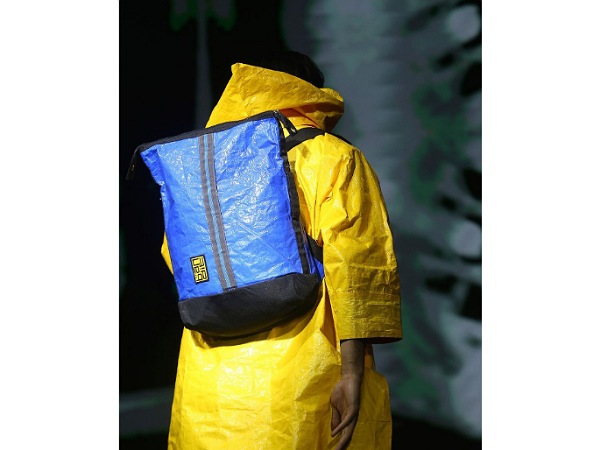Just In
- 4 min ago

- 1 hr ago

- 9 hrs ago

- 10 hrs ago

Don't Miss
- News
 Lok Sabha Election 2024: PM Modi To Campaigns In Bengaluru And Chikkaballapura Today
Lok Sabha Election 2024: PM Modi To Campaigns In Bengaluru And Chikkaballapura Today - Movies
 Ghilli Re-release Box Office Collection Day 1 Prediction: Thalapathy Vijay-Trisha's Film To Earn A Whopping Rs
Ghilli Re-release Box Office Collection Day 1 Prediction: Thalapathy Vijay-Trisha's Film To Earn A Whopping Rs - Technology
 Samsung Galaxy F15 5G New 8GB/128GB Variant Launched in India: Check Price, Specifications
Samsung Galaxy F15 5G New 8GB/128GB Variant Launched in India: Check Price, Specifications - Finance
 HDFC Bank Q4 Preview: Net Profit Likely To Grow 56% YoY; Credila Stake Sale To Fuel Earnings
HDFC Bank Q4 Preview: Net Profit Likely To Grow 56% YoY; Credila Stake Sale To Fuel Earnings - Sports
 RCB Green Jersey Match: Record And Stats Ahead of KKR Meeting in IPL 2024
RCB Green Jersey Match: Record And Stats Ahead of KKR Meeting in IPL 2024 - Automobiles
 Mahindra XUV 3XO SUV – Everything We Know So Far
Mahindra XUV 3XO SUV – Everything We Know So Far - Education
 Exam Pressure Does Not Exist; Studying Punctually is Crucial; Says Aditi, the PSEB 2024 Topper
Exam Pressure Does Not Exist; Studying Punctually is Crucial; Says Aditi, the PSEB 2024 Topper - Travel
 Journey From Delhi To Ooty: Top Transport Options And Attractions
Journey From Delhi To Ooty: Top Transport Options And Attractions
FDCI x LFW: Goa-Based Bandit Shows Tarpaulin In A New Light; Bags The Winning Spot!
In the 19th and early 20th century, jersey wasn't a luxurious fabric to begin with and was mainly used in making undergarments for men. However, partly inspired and partly due to financial constraints, Gabrielle 'Coco' Chanel invested in this ordinary fabric. Comfortable, practical, and breathable, with jersey fabric, Coco Chanel beckoned the prospective clients to change their perception around jersey. She subsequently, crafted smart and fuss-free outfits with this largely-overlooked fabric and made jersey a mainstream fabric, good enough to make something as chic as a skirt-suit.

Fashion, has over the years, provided answers and forced realisation on the part of the customers. For instance, when Anavila Misra came up with linen sarees, the Indian fashion connoisseurs were surprised, for linen is a difficult fabric to weave; it breaks easily. However, given the challenges, Anavila designed linen sarees and the sarees made out of this coarse cotton fabric became an instant hit for these lightweight sarees offered understated elegance and freedom of movement - something that working professionals relate to. Now, on the day 2 of the ongoing FDCI x LFW, another solution came in the form of tarpaulin.
The second day started with the R|Elan Fashion for Earth presents Circular Design Challenge in partnership with United Nations Environment Programme. The challenge had six shortlisted entrepreneurs presenting their collections and stories via respective digital presentations. The denims couture, scarves-turned-into-sling bags, textured upcycled outfits, contemporary jacket-inspired sarees from old heirlooms, and modern-vintage outfits, were the interesting concepts introduced at the Circular Design Challenge but tarpaulin material was what really made it exciting.
Tarpaulin is something that we see on the tin sheds while driving through a countryside. When we think tarpaulin, we think tents or something that cars in the garage would be covered with. It is basic, doesn't feel soft-like chiffon, meant for a rugged lifestyle, and most of all unglamorous. But on the Day 2, tarpaulin emerged as a winner and the Goa-based brand, which brought tarpaulin on the forefront, Bandit, was awarded 20-lakh cash prize and they also earned an opportunity to showcase their collection at the next season of fashion week.

Founded in 2018 by Satyajit Vetoskar, the designer at the challenge, revealed about one of his bags, "As you can see, we've made our products from tarpaulin, which is a waste and excess. The backpack is made from that (tarpaulin), the straps are made from car seatbelts, the lining inside is from waste cotton." Post the presentation by the designer, the digital medium showed models flaunting different tarpaulin bags highlighted by an equal mix of bold and muted hues, with yellow as the most striking colour.
It was easy to see an appeal and commercial viability in the winning-brand's products, which included backpacks, fannypacks, slings, laptop sleeves, and totes. Firstly, 'the excess material' (tarpaulin), as the brand's founder had put it, protects a product from wind, rain, and sun, which is where Bandit's products seemed meaningful and didn't give a vibe that it is not just another brand wasting resources or overusing a fabric but rather a brand putting these often-ignored and common resources into use and producing something that holds relevance. The brand made tarpaulin fashionable; go to their website and you'll find how the brand has occasionally collaborated with artists, designers, musicians, and photographers, to manufacture bags, which appeal to the 'woke' customers, who are often driven by personality and unique quotient. And who doesn't need an economically-priced bag! Bandit found a solution.
Pics Courtesy: Instagram
-
 fashionNational Handloom Day: Tiger Stripes Collection Chakradhara By Warp N Weft And WWF India
fashionNational Handloom Day: Tiger Stripes Collection Chakradhara By Warp N Weft And WWF India -
 fashion trendsFDCI ICW 2022: Rajkummar Rao Rocks Distressed Black Pantsuit For Anamika Khanna
fashion trendsFDCI ICW 2022: Rajkummar Rao Rocks Distressed Black Pantsuit For Anamika Khanna -
 fashion trendsFDCI ICW 2022: Sara Ali Khan In Glittery Ensemble For Falguni And Shane Peacock
fashion trendsFDCI ICW 2022: Sara Ali Khan In Glittery Ensemble For Falguni And Shane Peacock -
 fashion trendsFDCI India Couture Week 2022: Decoding Shilpa Shetty's Royal Bridal Look For Designer Dolly J
fashion trendsFDCI India Couture Week 2022: Decoding Shilpa Shetty's Royal Bridal Look For Designer Dolly J -
 fashion trendsFDCI India Couture Week 2022: Rashmika Mandanna Paints The Town Red In Magnificent Lehenga By Varun Bahl
fashion trendsFDCI India Couture Week 2022: Rashmika Mandanna Paints The Town Red In Magnificent Lehenga By Varun Bahl -
 fashionFDCI India Couture Week 2022: JJ Valaya Presents ‘ALMA’ That Talks About His 30-Year Legacy In Fashion
fashionFDCI India Couture Week 2022: JJ Valaya Presents ‘ALMA’ That Talks About His 30-Year Legacy In Fashion -
 fashionFDCI X Lakmé Fashion Week Returns To Mumbai, To Be Held In October 2022
fashionFDCI X Lakmé Fashion Week Returns To Mumbai, To Be Held In October 2022 -
 fashion trendsFDCI x Lakmé Fashion Week To Be Held In Delhi For The First Time In March 2022 In Physical Format
fashion trendsFDCI x Lakmé Fashion Week To Be Held In Delhi For The First Time In March 2022 In Physical Format -
 fashion trendsFDCI x LFW 2021: Naushad Ali Makes Chettinad Checks Relevant And Mainstream; The Best Edit Of Day One
fashion trendsFDCI x LFW 2021: Naushad Ali Makes Chettinad Checks Relevant And Mainstream; The Best Edit Of Day One -
 bollywood wardrobeFrom Kriti Sanon To Sonam Kapoor Ahuja, Celebrity Muses At The FDCI ICW 2021
bollywood wardrobeFrom Kriti Sanon To Sonam Kapoor Ahuja, Celebrity Muses At The FDCI ICW 2021 -
 fashion trendsICW 2021: Gaurav Gupta’s Take On Inclusivity And Love, Matters And His Clothes Are A Celebration Of Fluidity
fashion trendsICW 2021: Gaurav Gupta’s Take On Inclusivity And Love, Matters And His Clothes Are A Celebration Of Fluidity -
 fashion trendsFDCI Announces India Couture Week (ICW) 2021 Dates And List Of Designers Showcasing
fashion trendsFDCI Announces India Couture Week (ICW) 2021 Dates And List Of Designers Showcasing


 Click it and Unblock the Notifications
Click it and Unblock the Notifications



